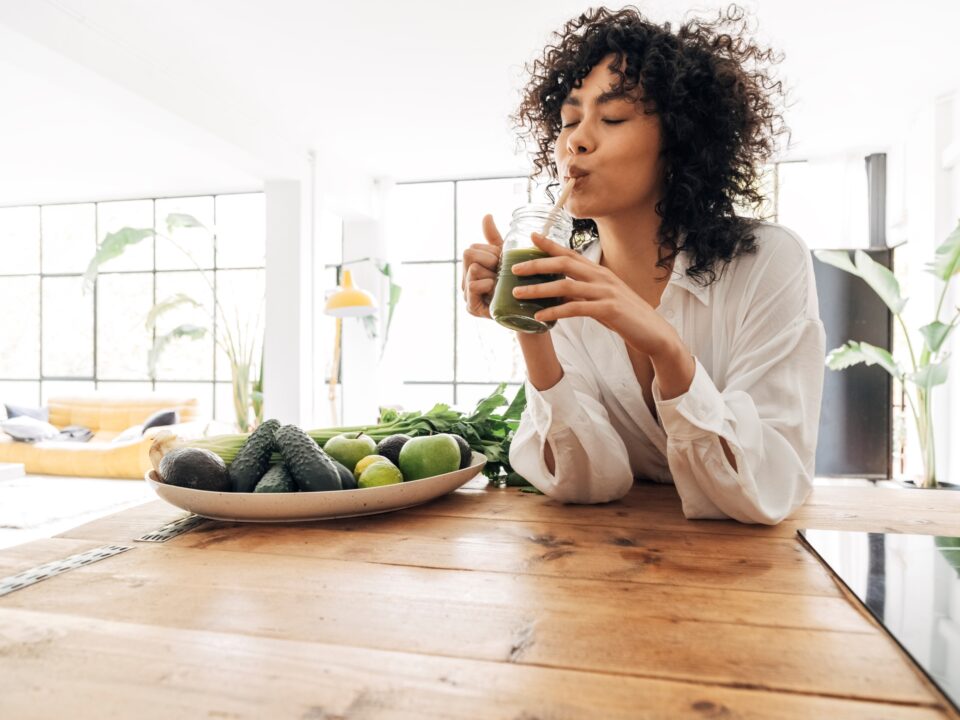International Tea Day 2021
Happy International Tea Day! 2022 is just around the corner and that’s why we asked ourselves the question where the journey is heading in terms of taste in the tea segment.
The holistic health trend has come to stay
Today’s consumers are busy – physically as well as mentally. In a digital and efficient modern world, staying healthy has taken on a vital and pressing meaning. An ever-growing focus on holistic health is the result and consumers are still and will continue looking for products and services that help them to increase their physical and emotional wellbeing. The world of botanicals offers a variety of beneficial properties to support the body and the mind.
Now more than ever, consumer food and drink choices are driven by their interest in a strong immune system. 64% of global consumers say that they would like to improve their immune health over the next twelve months. Botanicals like ginger, echinacea and green tea can function as a natural source of immune-supporting nutrients in tea and increase the consumer appeal due to its natural positioning.
And as our daily life is becoming more hectic and fast-paced, people are continuously looking for ways to get a quick energy boost – preferably in a natural way. As (holistic) health is an omnipresent concern of consumers, it puts pressure on energy drink which are perceived as sugary and artificial. Tea, on the other hand, has a very healthy image by nature. By adding well-known energy-boosting components like guarana, ginseng or mate a real natural source of energy with a healthier image can be created. This can also easily be blended with other herbal and fruit ingredients for a great taste sensation.
Already a key health priority for consumers is digestive health. Since scientific research has established links between the gut microbiota and other aspects of health, including immune system support and mental wellbeing, it has become more relevant. Tea, traditionally associated with beneficial properties, can help support gut health in a natural way. Herbal ingredients such as aniseed, fennel or caraway are new old classics which are increasingly getting more attention. The growing importance of holistic health creates new opportunities for gut health-supporting teas.
Concerns like stress relief and calm sleep are not uncommon nowadays. Consumers are looking for other ways to cope with hectic and busy times. That’s where adaptogens and nootropics come in handy: Adaptogens (usually herbs, root and mushrooms) are often associated with Chinese and Ayurvedic medicine. The growing focus on mental wellbeing calls for tea to raise the relaxation bar: besides common stress-relieving ingredients like chamomile and lavender, worthwhile adaptogenic ingredients to include in tea are botanicals like hops, hemp, moringa, tulsi an ashwagandha. The launches of teas bearing cognitive benefits are starting to increase and brands expand beyond physical to more mental alertness benefits. (Source: Mintel, 2021)
New classics: Trending botanicals for tea
The growing interest in “new classics” in terms of botanicals fits perfectly in the trend of holistic health. Factors like the rising awareness of advantages of herbal based beverages are facilitating the demand for traditionally used and well-known ingredients like ginger, turmeric, hibiscus or moringa.
Ginger is a well-used remedy and used in various medical systems. While it is known for its helpful properties with nausea and antibacterial effects, there is also emerging data on gingers impact on the gut microbiota and therefore its potential benefits for immune health.
Tumeric, also known as “the golden spice” has a long history of medicinal use for Ayurvedic and traditional Chines medicine. Although it has been a trend ingredient in some categories already (e.g. “Golden Milk”), the tea segment should consider botanical ingredients such as turmeric as natural sources of immune-boosting nutrients for their successful product innovations.
Hibiscus is a very well-known ingredient for all kinds of tea blends due to its sweet and tart flavor. Because of its high content of vitamin C and its antioxidant properties, consumers becoming more aware of it again.
Moringa is also often called the “miracle tree” because of its purpoted various health benefits. Consumers associate moringa with popular functionalities such as immunity or relaxation & wellness. Moringa is an ingredient to watch out for.
Nostalgia: Flavor vacation at home
In challenging times like these, consumers long for memories of times when you could do things without worry, especially things like travelling and discovering new cultures – including their distinctive flavors! Since travelling is still partly restricted, consumers are craving new culinary adventures to try at home. Flavors which remind the consumers of their favorite travel destination evoke that “vacation feeling” at home. Tea with botanical flavor blends designed to bring back memories can support a feeling of safety and wellness.
If you want to find out more about our botanicals with their various application possibilities, feel free to get in touch with us: sales@martin-bauer.com
Related Topics:
Related posts
Food Trends – the taste of 2025
Foodies get your taste buds ready as 2025 is about to get delicious. Here are our top 5 trends we see on this year’s menu. […]
Read moreBold sips ahead: 2025 Beverage Trends you need to know
Fun. Fizzy. Fabulous. Ready to sip on what’s bubbling up in beverages this year? Here are our top 10 trends shaping the industry in 2025. […]
Read moreTea Vibes Only: What’s Brewing in 2025
2025 is serving Tea – but what’s hot in the industry? Get ready as we are spilling the Tea and talk about our top 10 trends […]
Read more

